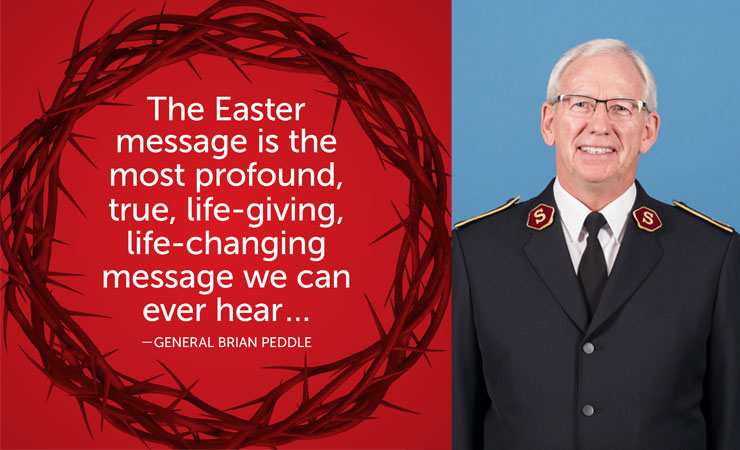Surely he took on our infirmities and carried our sorrows; yet we considered him stricken by God, struck down and afflicted. But he was pierced for our transgressions, he was crushed for our iniquities; the punishment that brought us peace was upon him, and by his stripes we are healed. We all like sheep have gone astray, each one has turned to his own way; and the Lord has laid on him the iniquity of us all.—Isaiah 53:4-6 Berean Study Bible
We see in these verses from Isaiah just what God has done for us in Jesus. In going to the cross, Jesus does something extremely positive, yet it involves him being subjected to pain, ridicule, brokenness and separation from the Father with whom he has shared a deep intimacy for all eternity. Jesus takes on everything that is negative, destructive and painful. This display of genuine, unconditional and sacrificial love is unparalleled in human history.
Even as we read and consider what Jesus takes on himself, we sense a release, an unburdening and a freedom. Jesus takes on our infirmities and carries our sorrows. Yes, there is a glimpse of the humanity of Jesus here as the Word that “became flesh” (John 1:14)—fully human while fully divine—understands the frailty, weakness and imperfection on a personal level. Having said that, we need to recognize that there is much more going on.
Jesus is doing more than identifying with us. He is taking on our weaknesses, infirmities and sorrows so that we don’t have to carry them. Link that opening statement to Philippians 4:6-7 (“Do not be anxious about anything … ”) and 1 Peter 5:7 (“Cast all your anxiety on him because he cares for you”) to better understand what is offered to us in Jesus. Look again at what happens to Jesus—he is pierced, crushed, punished and wounded. Why would Jesus accept all of that? Why would God allow his only Son to endure all of that?
Jesus’ display of genuine, unconditional and sacrificial love is unparalleled in human history.Another read of the verses from Isaiah illuminates what we receive through this sacrifice—peace and healing for ourselves. The punishment inflicted upon Jesus brings us peace. We experience healing because Jesus was wounded. It is almost beyond our understanding, but a horribly painful moment brings us healing and a horrifically violent act brings us everlasting peace.
There is something of an unfair transaction going on that demonstrates the extravagance of God and his unmerited favour that we call grace. There is also something profoundly theological, sacrificial and covenantal taking place.
The sacrificial code and practices we find in the Old Testament are there to atone for our sins and imperfections. Here on the cross, the spotless Lamb of God pays the ultimate sacrifice once and for all, ushering us into a new dispensation of grace and deliverance.
We have peace with God because of all that was accomplished by Jesus, and this peace is experienced by having faith in Jesus (see Romans 5:1: “Therefore, since we have been justified through faith, we have peace with God through our Lord Jesus Christ”). Yes, it’s that straightforward—we don’t have to complicate it!
The Easter story doesn’t end with Calvary. Easter Sunday is about resurrection and new life. In 2 Corinthians 5:17 we are reminded that “if anyone is in Christ, the new creation has come: the old has gone, the new is here!” The old reality of being held captive by sin, of death being our final enemy, is gone! On Easter Sunday we rise to new life in Christ—that new life is eternal life, it encapsulates victory over sin and death, it includes our healing and wholeness, it is a life of deep peace (see Isaiah 26:3: “You will keep in perfect peace those whose minds are steadfast, because they trust in you”).
This Easter you can experience healing and wholeness in Christ. It’s why Jesus came to earth. It’s what God desires most for you.
The Bible verses from Isaiah are brought to life through the song Surely He Has Borne Our Griefs. Visit youtube.com/watch?v=3rbDrq7Wneo to hear it performed by Govan Songsters from the United Kingdom Territory with the Republic of Ireland.
General Brian Peddle is the international leader of The Salvation Army.
Illustration: allanswart/ iStock via Getty Images










Leave a Comment